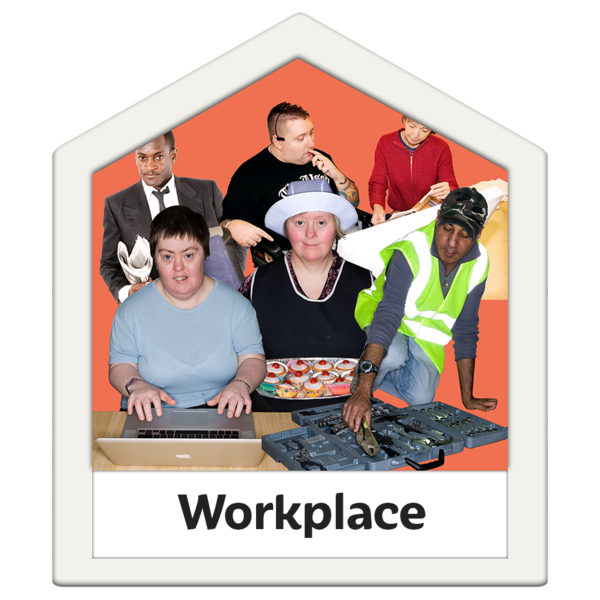Fact sheet 1: Learning disability and employment
There are 870,000 working age people with a learning disability in the UK (1). Mencap’s Big Learning Disability Survey in 2022 found just over a quarter (26.7%) of working age adult respondents were currently in work (2). Research commissioned by Mencap, meanwhile, found that 86% of learning-disabled respondents not currently not in work would like a job (3). Mencap believes this must and can improve.
What is a learning disability?
A
learning disability
 A learning disability is to do with the way someone's brain works. It makes it harder for someone to learn, understand or do things.
is caused by the way the brain develops before, during or shortly after birth. It is always lifelong and affects someone’s intellectual and social development. There are different types of learning disability, which can be mild, moderate, severe or profound. It used to be called ‘mental handicap’ but this term is outdated and offensive.
Learning disability
A learning disability is to do with the way someone's brain works. It makes it harder for someone to learn, understand or do things.
is caused by the way the brain develops before, during or shortly after birth. It is always lifelong and affects someone’s intellectual and social development. There are different types of learning disability, which can be mild, moderate, severe or profound. It used to be called ‘mental handicap’ but this term is outdated and offensive.
Learning disability
 A learning disability is to do with the way someone's brain works. It makes it harder for someone to learn, understand or do things.
is NOT a mental illness nor a learning difficulty, with the latter including things like
dyslexia
A learning disability is to do with the way someone's brain works. It makes it harder for someone to learn, understand or do things.
is NOT a mental illness nor a learning difficulty, with the latter including things like
dyslexia
 Dyslexia is a learning difficulty. People who have dyslexia can find it hard to read, write and spell.
or dyspraxia.
Dyslexia is a learning difficulty. People who have dyslexia can find it hard to read, write and spell.
or dyspraxia.
What does this mean in the context of employment?
People with a learning disability can make great employees! See Fact Sheet 2: The benefits of hiring someone with a learning disability.
However, people with a learning disability find it harder than others to learn, understand and communicate. They may need some support with learning new tasks or with understanding new situations. They may lack confidence and need a little extra support at the start, particularly as many may not have had any
work experience
 Work experience is when you try out a job to help you learn new skills.
before.
Work experience is when you try out a job to help you learn new skills.
before.
You may need to provide some adjustments in the workplace to help them do their job, but this does not mean that they are unable to work. You can find further information about what adjustments you can make to get the best out of an employee with a learning disability in Fact sheet 4: Making reasonable adjustments. Adjustments need not cost a lot of money – in fact, most are free.
Types of roles people with a learning disability can typically do
People with a learning disability are all individuals with different skills, so they will be able to do many different kinds of jobs. A learning disability can be mild, moderate or severe, so some people can do more complex tasks while others will need more basic responsibilities.
While we would encourage you to keep an open mind about what individuals can offer, there are some general guidelines about the sort of jobs you might be able to open up to candidates with a learning disability.
Jobs that could most easily be made accessible to people with a learning disability
These includes jobs that:
- require practical skills that can be learned through practice and repetition
- do not require high level qualifications
- do not require a driving licence
- have fixed elements and only require a little multitasking
- are within teams where tasks can be shared and support can be offered.
For example, roles like, but not limited to:
- warehouse operative
- administrator
- retail
-
customer
 A customer is a person who buys something or uses a service.
service
A customer is a person who buys something or uses a service.
service - cleaning
- catering
Many employers experience difficulty in recruiting to entry-level roles. Supported
employment
 Employment means having a job.
agencies, such as Mencap, can help guide employers and help match the right person to the right job.
Employment means having a job.
agencies, such as Mencap, can help guide employers and help match the right person to the right job.
More information about the various programmes and support appears in Fact sheet 5: What support is available.